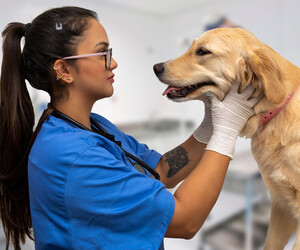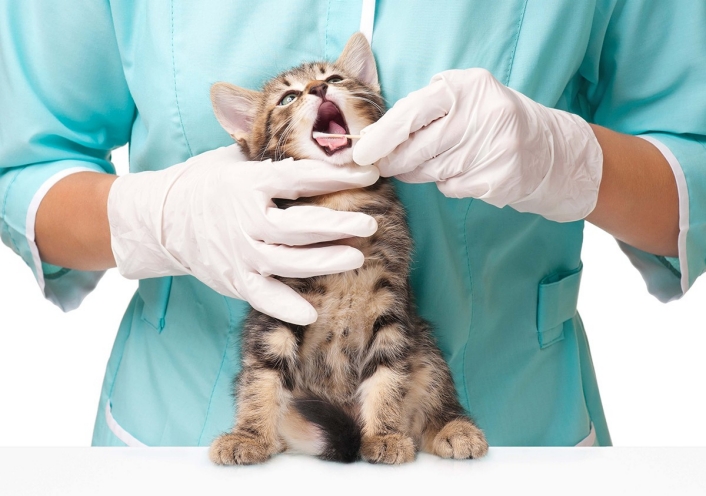Inoculation Guidelines From Your Trusted Vet
Inoculation guidelines provided by your trusted vet play a crucial duty in protecting your pet dog's health and well-being. Additionally, attending to usual mistaken beliefs surrounding vaccines can additionally boost animal proprietors' self-confidence in these precautionary actions.

Importance of Vaccinations
Inoculations play a pivotal duty in guarding family pets versus a variety of preventable conditions. By promoting the immune system to identify and fight particular pathogens, vaccines considerably lower the incidence of contagious diseases that can influence a pet dog's health and wellness and durability. Not just do inoculations safeguard specific animals, but they also add to herd immunity, therefore reducing the total frequency of illness in the pet population.
Timely inoculations assist to mitigate the spread of diseases such as rabies, parvovirus, and distemper, which can have severe effects for both animals and human beings. Moreover, vaccinations are often a demand for boarding centers, brushing solutions, and canine parks, making them essential for those who desire to socialize their pet dogs.

Core Vaccines for Family Pets
While the certain vaccination demands of family pets can differ based upon private factors, core vaccinations are generally advised to protect versus the most major and usual illness (Vet Enterprise). Core vaccinations are those considered essential for all pet dogs, regardless of their lifestyle or geographical place, as they safeguard versus extremely infectious and possibly fatal illnesses
For pets, the core vaccines include those for canine distemper, parvovirus, adenovirus (liver disease), and rabies. Canine distemper is a viral illness that impacts the respiratory, intestinal, and nerve systems. Parvovirus is understood for creating extreme gastrointestinal disease, particularly in puppies. Adenovirus can lead to liver condition, while rabies is a zoonotic illness that postures a risk to both human beings and animals.
In felines, core injections incorporate feline panleukopenia, feline calicivirus, feline herpesvirus (rhinotracheitis), and rabies. Feline panleukopenia is a highly contagious viral disease that impacts the body immune system and intestines. Calicivirus and herpesvirus are major contributors to upper breathing infections in felines, while rabies continues to be an important problem for public wellness.
Speak with your veterinarian to ensure your animals receive their core vaccinations on time.
Non-Core Vaccines Explained
Non-core injections are tailored to deal with particular risks related to a family pet's atmosphere, direct exposure, and way of life to certain diseases. Unlike core vaccinations, which are globally advised for all family pets, non-core injections are thought about based on private conditions. These vaccines are specifically crucial for pets that might encounter one-of-a-kind microorganisms as a her latest blog result of their geographical location, traveling routines, or activities.
Instances of non-core vaccines include those for Bordetella bronchiseptica, which is connected to kennel cough, and Lyme illness, brought on by ticks. Animals that frequently engage with other pets, such as those in boarding facilities, dog parks, or brushing environments, might profit from Bordetella inoculation. Likewise, if you stay in an area where Lyme condition prevails, vaccinating against this condition can be a prudent selection for outdoor-loving pet dogs.
Other non-core injections might include those for leptospirosis, canine influenza, and feline leukemia, depending on the specific risk aspects existing. It is necessary to have a comprehensive discussion with your veterinarian regarding your pet dog's lifestyle and the prospective demand for these vaccines, making sure a customized inoculation method that ideal protects your furry good friend.
Inoculation Schedule Summary

As pet dogs grow, it is essential to follow the suggested booster inoculations. Emergency Vet. For grown-up pets, core vaccines are usually provided each to 3 years, depending upon the details vaccination and local policies. Non-core injections might be advised based on lifestyle elements and regional condition frequency, demanding a you could try this out customized approach
Regular veterinary examinations are critical for upgrading inoculation schedules. Your veterinarian can offer support on the most proper immunizations for your pet, factoring in age, health condition, and environmental dangers. By staying aggressive and notified, animal owners can ensure their furry friends receive reliable and prompt vaccinations, consequently guarding their health and wellness and wellness throughout their lives.
Typical Myths About Vaccines
Misconceptions about pet vaccinations can result in confusion and hesitation amongst animal proprietors regarding the booster shot process. One prevalent misconception is that injections are unnecessary for interior family pets. While it's true that interior family pets deal with lower threats, they are not totally unsusceptible to conditions, as microorganisms can be presented with various ways, including human apparel and various other pets.
An additional mistaken belief is that injections can cause the illness they aim to avoid. In truth, the majority of injections contain suspended or undermined virus, which can not trigger condition in healthy pets. Some pet dog proprietors also believe that their pet dogs ought to not be immunized if they are currently healthy; however, inoculations are a positive procedure that helps stop the start of ailment.
Additionally, lots of pet dog proprietors are afraid that vaccines will lead to long-lasting health and wellness difficulties. The advantages of inoculation-- securing pets from potentially dangerous illness-- far exceed the threats.
Verdict
In recap, adherence to inoculation standards is critical for ensuring the health and longevity of pets. Core vaccines give important security against serious conditions, while non-core injections resolve details dangers based on individual lifestyles. Establishing a comprehensive inoculation routine, along with regular veterinary examinations, helps with optimal health and wellness monitoring. Eliminating typical myths bordering vaccinations further reinforces the importance of educated decision-making in animal treatment. Ultimately, an aggressive method to vaccinations is essential for preserving pet health.
Not just do vaccinations shield individual pets, but they also add to herd resistance, thus reducing the overall frequency of diseases in the animal populace.
False impressions concerning animal inoculations can lead to complication and reluctance among family pet proprietors concerning the booster shot procedure. While it's true that interior animals encounter reduced risks, they are not completely immune to diseases, as pathogens can be introduced with numerous methods, including human clothes and various other pet dogs.
Some pet owners likewise think that their pet dogs should not be vaccinated if they are already healthy; nevertheless, inoculations are a proactive measure that aids avoid the beginning of ailment.
The advantages of inoculation-- protecting animals from possibly life-threatening illness-- far outweigh the threats.